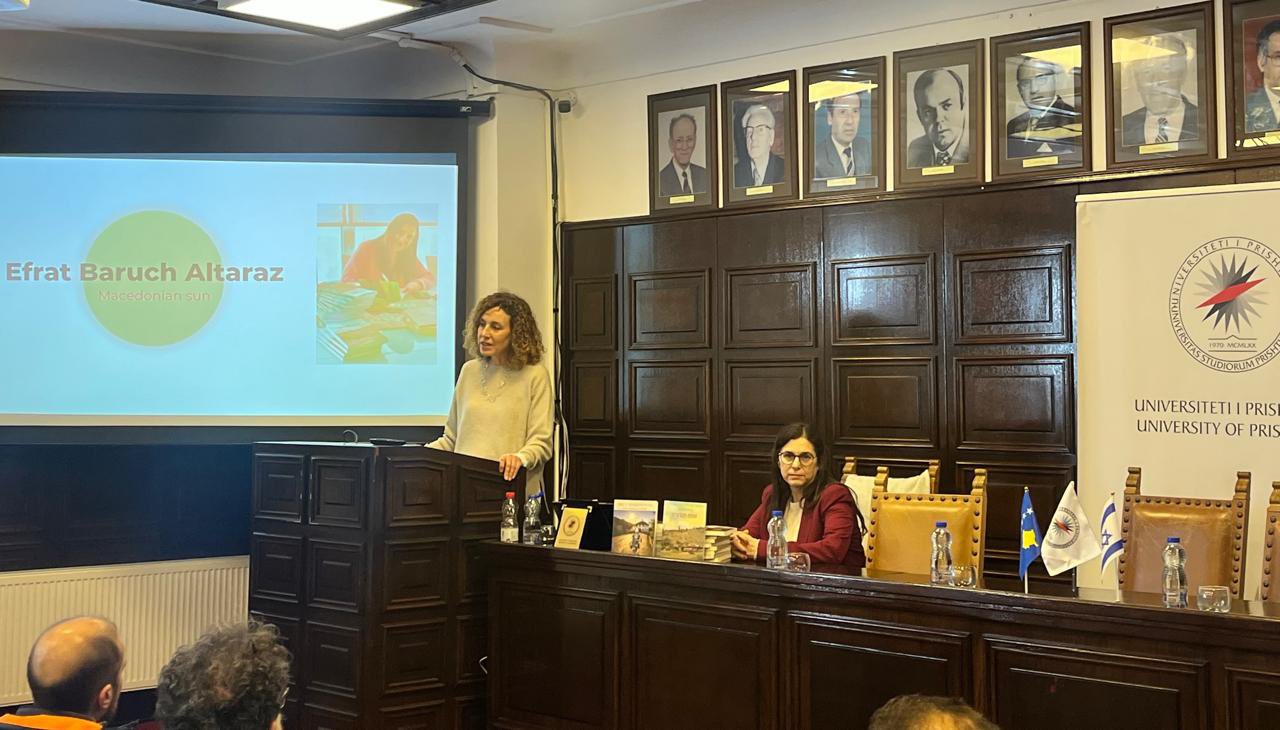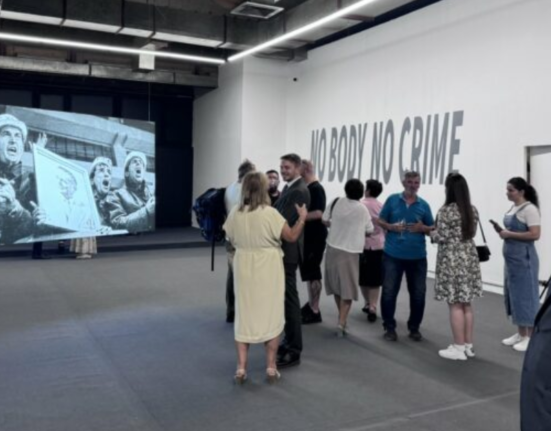After the fall of communism in Albania and the liberation of Kosovo, followed by Kosovo’s declaration of independence, the world gradually uncovered a remarkable but long-overlooked chapter of history—the Albanian effort to save Jews during the Holocaust. Despite immense risks, Albanians upheld their centuries-old code of Besa, a moral obligation to protect those in need. Sheltering Jews from the Nazis was a perilous act; discovery meant execution. Yet, Albanians across Albania and Kosovo provided refuge, treating Jewish families as their own. This humanitarian act stood in stark contrast to the widespread persecution elsewhere in Europe. As Albania opened to the world and Kosovo emerged as a sovereign state, this unique history gained international recognition. Numerous Albanian families have since been honored as “Righteous Among the Nations” by Yad Vashem, reaffirming that, even in the darkest times, humanity and solidarity prevailed in the Albanian lands.A newly published book, “Macedonian Sun” (Albanian: “Dielli Maqedonas”), brings to light a deeply moving and historically significant story—the fate of Rashella Sion, now Rashella Altaraz, a Jewish woman who miraculously survived the horrors of the Holocaust thanks to the bravery of Albanians in Kosovo.
For decades, Rashella Sion was officially listed among those killed in the Holocaust. Her name appears on memorial plaques in North Macedonia and the Treblinka extermination camp. However, behind this name is a harrowing yet inspiring story of survival, secrecy, and the remarkable rescue of Jews by Albanians. It took 60 years before she finally broke her silence.
Her journey has now been documented by her daughter-in-law, Efrat Baruch-Altaraz, in the book “Dielli Maqedonas”. On Tuesday, Baruch-Altaraz visited Prishtina to share this extraordinary testimony. Speaking about the unique role Albanians played in saving Jewish lives, she emphasized.
“The Albanian side of the story is extremely important for the Jewish community. The way Albanians saved Jews is unique. There is no other nation like the Albanians, who were so humane and welcoming in saving Jewish lives.”
Baruch-Altaraz
A Childhood Marked by War
The early morning of March 12, 1943, was filled with terror in Shtip, a town in what is now North Macedonia. The Nazi and Bulgarian forces raided Jewish homes, dragging families out and loading them onto military trucks. Similar operations took place in Skopje and Bitola, targeting the local Jewish communities.
The Sion family lived in Shtip’s Jewish quarter, part of a small but vibrant community. That morning, the streets echoed with soldiers’ commands and the cries of those being torn from their homes. Among the thousands taken that day, only one child—an eight-year-old girl—managed to escape.
That child was Rashella Sion, the central figure in “Dielli Maqedonas”.
From Capture to Survival
The Jewish population of Macedonia, mostly Latino-speaking Jews, was deported to Monopol, a tobacco factory in Skopje used as a temporary detention center. There, over 7,000 Jews were crammed into inhumane conditions, waiting for deportation to Treblinka, one of the most notorious Nazi extermination camps in Poland.
Rashella’s older sister, Bella Sion, was married to a Jewish man from Pristina, and both held Italian citizenship. Her husband, a partisan fighter, had been captured. Using her Italian papers, Bella was able to negotiate her release from Monopol. As she was about to leave, their mother made a desperate plea:
“Take the child with you.”
Miraculously, young Rashella was allowed to leave with her sister. It was an escape that went unnoticed by the Nazi guards.
A refuge in Kosovo
Bella and Rashella found temporary shelter in Pristina with Bella’s in-laws. However, tragedy struck when Bella, devastated by the news of her husband’s execution, took her own life—leaving Rashella completely alone.
As Nazi forces intensified their grip on Kosovo, Rashella was taken to a village near Gjakova, where an Albanian family sheltered her on their small farm. The tradition of Besa, a sacred Albanian code of honor, meant that Jews were protected as family members, despite the risk of death for those who harbored them.
However, the danger was never far away. At one point, Rashella fell gravely ill with typhus, and her hospitalization led to her discovery by the Germans. She was eventually sent to a concentration camp in Belgrade, where she remained until the war ended.
A Life Rebuilt in Israel
In 1948, following the establishment of the State of Israel, Rashella emigrated there. She later served in the Israeli army, married a Holocaust survivor from Bosnia, and built a family in Jerusalem. Today, at 90 years old, she has finally shared her incredible journey—a story of loss, survival, and the humanity of strangers who risked everything to save her.
Efrat Baruch-Altaraz, who guides Israeli visitors through the Balkans, has found that many are unaware of Albania and Kosovo’s role in saving Jewish lives. She noted that Jews were not only sheltered but actively protected in Albanian families, making this one of the most remarkable Holocaust rescue stories.
“Many are shocked when I tell them how many Jews found safety in Albanian homes. The rescue of Jews by Albanians is recognized worldwide. Many Albanian families have been honored as ‘Righteous Among the Nations’ by Yad Vashem.”
The publication of “Dielli Maqedonas” ensures that Rashella Sion’s story—and the heroism of those who saved her—will not be forgotten.




Leave feedback about this